Federal Budget 2025: When poll chips are down, hold the reform: putting party’s political needs first

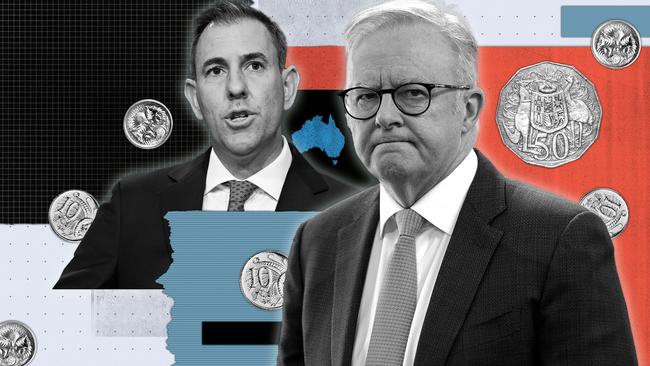
It is the budget of a flawed government. But also the budget of an astute government driving to win an election. The message to the people is “the economy is turning the corner” and “the worst is behind us” backed by enough cash relief to sound plausible.
In the short term, the budget affirms the road to economic recovery – but in the longer term the budget is static. It suggests an economy marking time, lacking an ambitious structural agenda, ill-suited to a world that is more demanding and dangerous.
The sad truth is Labor doesn’t trust itself or the public to redirect our national priorities from cost-of-living handouts and mini tax cuts to the mounting challenges that will cost Australia the longer they are denied and deferred.
It is a budget for an election, not for the transformational times we are living in. There is no significant spending restraint, no major tax reform, no increase in the defence budget, and little prospect of a more competitive economy despite Jim Chalmers declaring a world that is more volatile, disruptive and unpredictable. But the tax-cut debate is opened up – and this points to an election war of uncertain dimension over tax policy given opposition Treasury spokesman Angus Taylor has said the Coalition will not support the Treasurer’s tax cuts, calling them a “cruel hoax”.

Labor’s tax-cut surprise is cute and modest, giving everyone a $268 tax cut next year and up to $536 the following year by cutting the lowest marginal rate from 16 to 14 per cent. Yet it reveals, by omission, the hopeless paucity of our tax reform debate. It raises the tax issue for the Coalition – will the Coalition avoid any tax cut for fiscal responsibility or will it now bring down its own far more ambitious and reformist tax cut? Presumably, it will opt for the latter option. Labor’s hubris is on steroids.
Chalmers says economic progress has been “exceptional” and the budget plans for “a new generation of prosperity”. He says it’s about rebuilding incomes and boosting resilience. But the numbers tell a different story.
The return to growth trajectory is still historically weak; spending is permanently higher for a decade, and mainly social spending; the cash balance budget deficit over the next four years is $179bn and the headline deficit figure (that includes off-budget measures) is monstrous at $283bn over the same period; budget deficits will run until 2035-36; and there is no plan for a long overdue tax reform during the next parliament.
But Labor cannot solve the central proposition on which Peter Dutton will run – that most people remain worse off since Anthony Albanese took office. Living standards are being slowly, agonisingly repaired, but there’s a long way still to go. That’s Labor’s inescapable dilemma.
It’s no surprise, therefore, that since the mid-year review, Labor has committed $35bn in spends and tax cuts but financed the lot off the operation of the economy on the bottom line. Nice if you can get it.
The central aim of the budget is the rekindling of hope. Trust is too much to expect after unprecedented falls in living standards and negative growth in GDP per person. The purpose is to prove to the public that Labor’s cost-of-living relief outmatches that of the Coalition.
Chalmers is geared up for the campaign, selling an economic recovery, falling inflation, falling interest rates, and rising wages. His pitch is inflation returning to the 2-3 per cent band and unemployment still contained below 4.25 per cent – and, given the situation, it’s a plausible pitch.
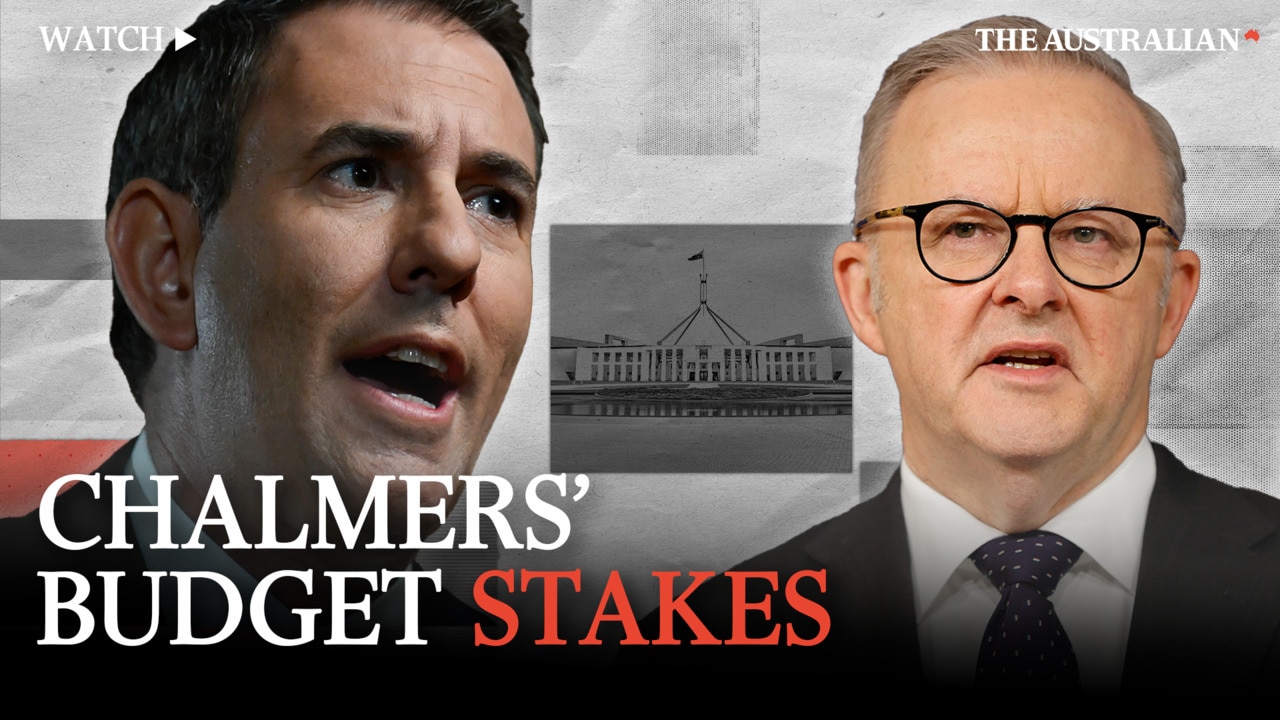
The Treasurer depicted a world of disruption where US President Donald Trump was imposing tariffs, China’s growth was slowing and war was raging in Europe and the Middle East – economies are slowing but strategic risks are rising.
Yet Labor has taken a wilful decision not to increase the defence budget while bringing forward $1bn for submarines and missiles.
The budget is inadequate for a more dangerous world and its defence spend is an open provocation for Trump to criticise Australia, if he ever thinks about it. This is a big, potentially dangerous, call by Labor.
The government faces the fiscal embarrassment of having two budget surpluses and then a plunge into deficits – of $27.6bn in 2024-25 and $42.1bn forecast for 2025-26. Spending in real terms is projected to increase by 2.7 per cent a year in the five years to 2028-29. But spending stays at a permanent higher plateau, projected to be 27 per cent of GDP in the coming year and 26.4 per cent of GDP in four years’ time, compared with 24.4 per cent when Labor took office.
Despite the tough times, this is an election budget.
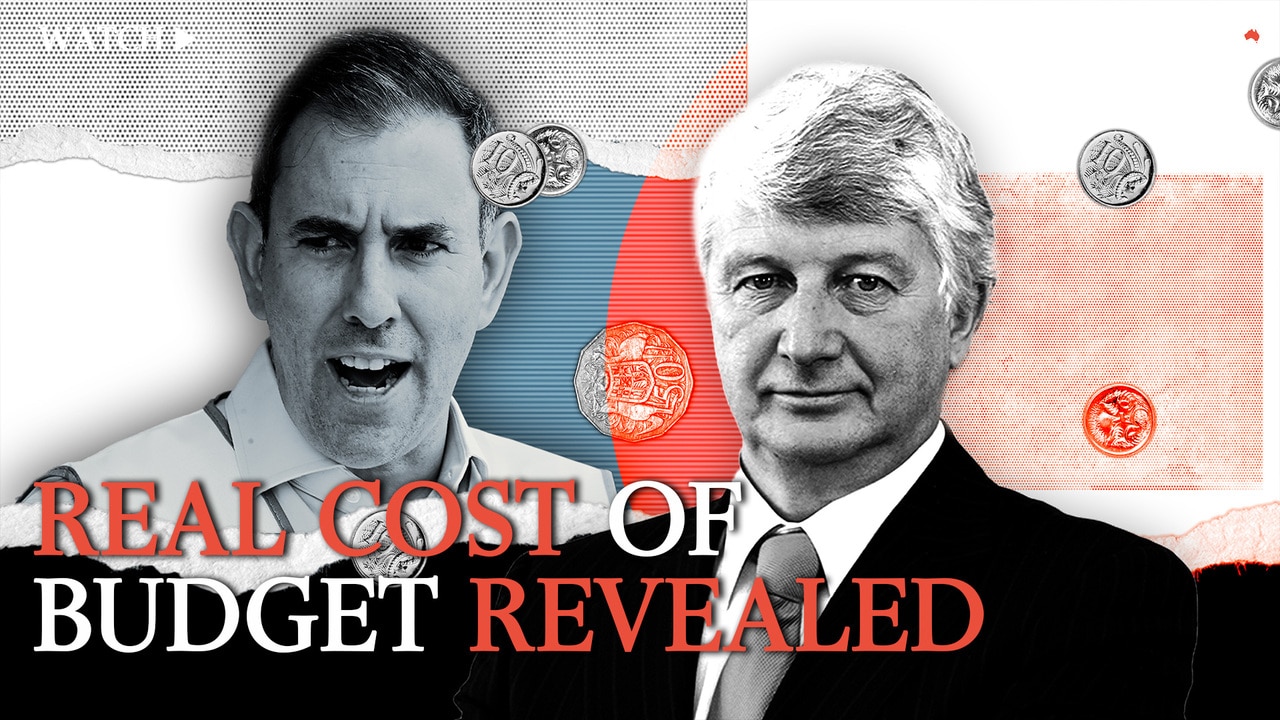
The new tax cuts cost revenue $17.1bn over five years, strengthening Medicare costs $8.3bn over four years mainly for bulk billing, energy rebates cut $150 off bills this year to compensate for Labor’s failure to lower power prices, while the top price for a PBS script is cut to $25. The 20 per cent cut in student loan debt slashes $19bn in debt for more than three million students, a redistribution towards the better-off, post-graduation. Labor is funding pay rises for aged-care nurses and promoting its Future Made in Australia economic subsidies.
Chalmers wants to fight on the economy – he promotes a revived competition policy and bans non-complete clauses that restrict workers moving from employers.



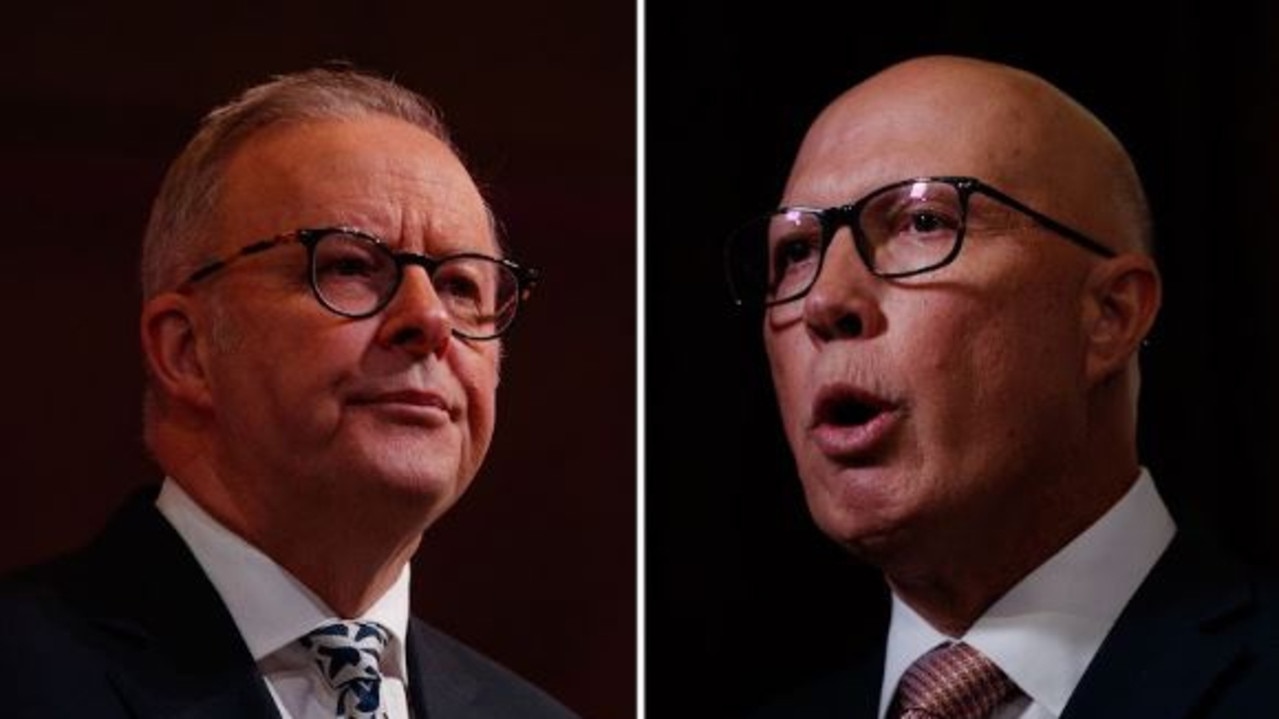
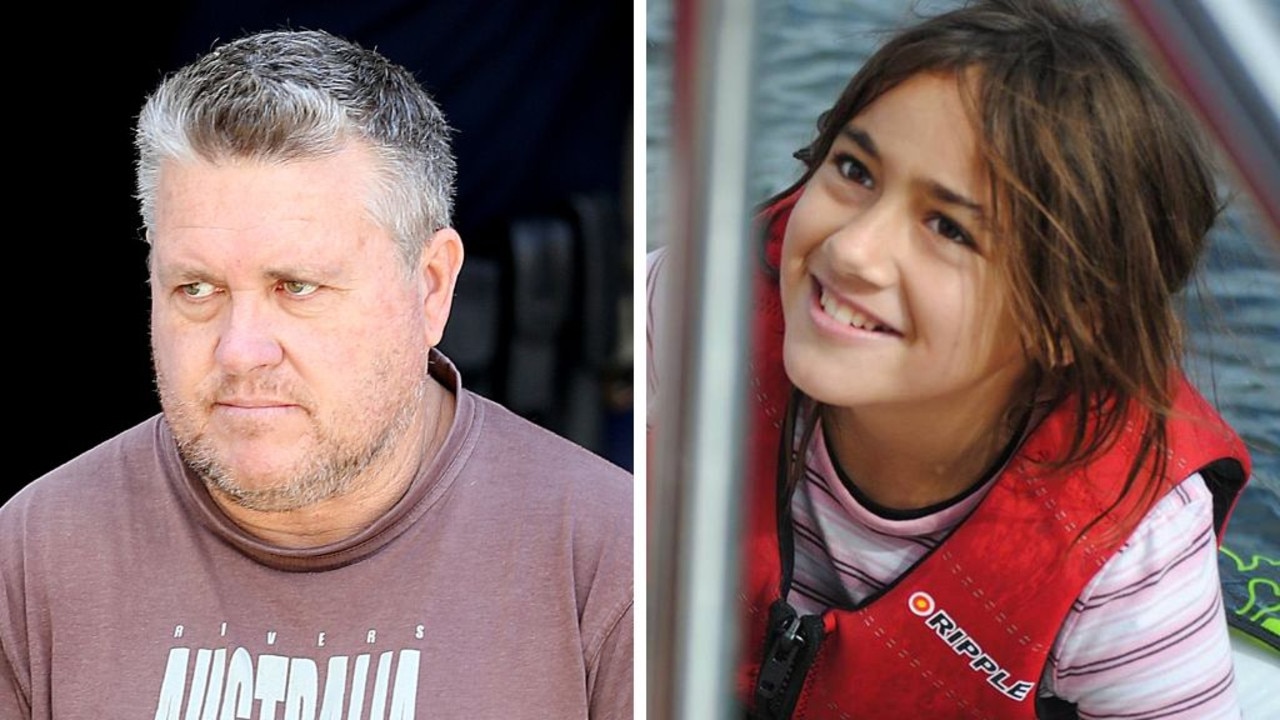
This budget fails Australia’s needs in terms of fiscal accountability, structural policy, productivity enhancement and strategic imperatives – it puts immediate election tactics before the pressing challenges facing the country.